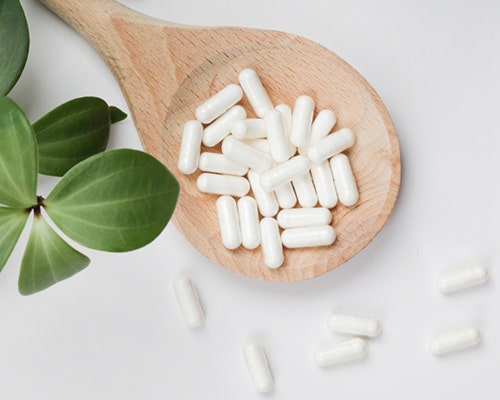Enhance Your Wellness with Probiotics: Strengthening Immunity and Digestion

Image Source – Google
Probiotics are live bacteria and yeasts that are good for your health, especially your digestive system. While many people associate bacteria with illness, the truth is that your body is full of bacteria, both good and bad. Probiotics are often referred to as "good" or "friendly" bacteria because they help keep your gut healthy. Keep your gut healthy with probiotics by browsing this website.
The Importance of Probiotics
Supporting Digestive Health
- Probiotics can help restore the natural balance of bacteria in your gut, especially after taking antibiotics.
- They can help improve digestive function and reduce symptoms of digestive disorders like irritable bowel syndrome (IBS) and inflammatory bowel disease (IBD).
- Probiotics can aid in the breakdown and absorption of nutrients from food.
Boosting Immune System
- The majority of the immune system is located in the gut, making a healthy gut crucial for overall immune function.
- Probiotics help increase the production of natural antibodies in the body to fight off infections.
- They also regulate inflammation and may help reduce the severity of allergic reactions.
Food Sources of Probiotics
Yogurt
Yogurt is one of the best sources of probiotics, containing strains like Lactobacillus and Bifidobacterium. Make sure to choose plain, unsweetened yogurt to avoid added sugars that can have negative effects on your health.
Kefir
Kefir is a fermented milk drink similar to yogurt but with a thinner consistency. It is rich in probiotics and also a good source of calcium, protein, and other essential nutrients.
Sauerkraut
Sauerkraut is fermented cabbage that is high in probiotics and vitamin C. Look for unpasteurized sauerkraut to ensure it still contains live cultures.
Kimchi
Kimchi is a spicy Korean dish made from fermented vegetables, usually cabbage and radishes. It is a tasty way to add probiotics to your diet while also benefiting from the vitamins and antioxidants in the vegetables.
Supplements
Choosing the Right Probiotic Supplement
- Look for a supplement with a variety of strains, as different strains have different health benefits.
- Check the CFU (colony-forming units) count to ensure potency. A higher CFU count does not always mean a better supplement, so consult with a healthcare provider for personalized recommendations.
- Consider your specific health needs when choosing a probiotic supplement, whether it's for digestive issues, immune support, or overall wellness.
How to Take Probiotic Supplements
- Take your probiotic supplement with a meal to enhance absorption.
- Store your supplements according to the manufacturer's instructions to maintain potency.
- It's best to start with a lower dose and gradually increase to allow your body to adjust to the new bacteria.
Tips for Incorporating Probiotics into Your Diet
Add Them to Your Meals
- Top your morning oatmeal with a dollop of yogurt or kefir.
- Mix sauerkraut or kimchi into salads, stir-fries, or sandwiches for a flavorful probiotic boost.
- Blend a smoothie with yogurt, kefir, or a probiotic supplement for a nutritious and gut-friendly drink.
Experiment with Fermented Foods
- Try making your own fermented vegetables at home, like pickles or kombucha.
- Explore different types of fermented foods from around the world to diversify your probiotic intake.
Conclusion
Probiotics play a crucial role in maintaining a healthy gut, which in turn supports overall wellness by strengthening immunity and digestion. By incorporating probiotic-rich foods and supplements into your diet, you can optimize your gut health and experience the benefits of a balanced microbiome. Consult with a healthcare provider to determine the best probiotic regimen for your specific health needs and enjoy the positive impact on your well-being.